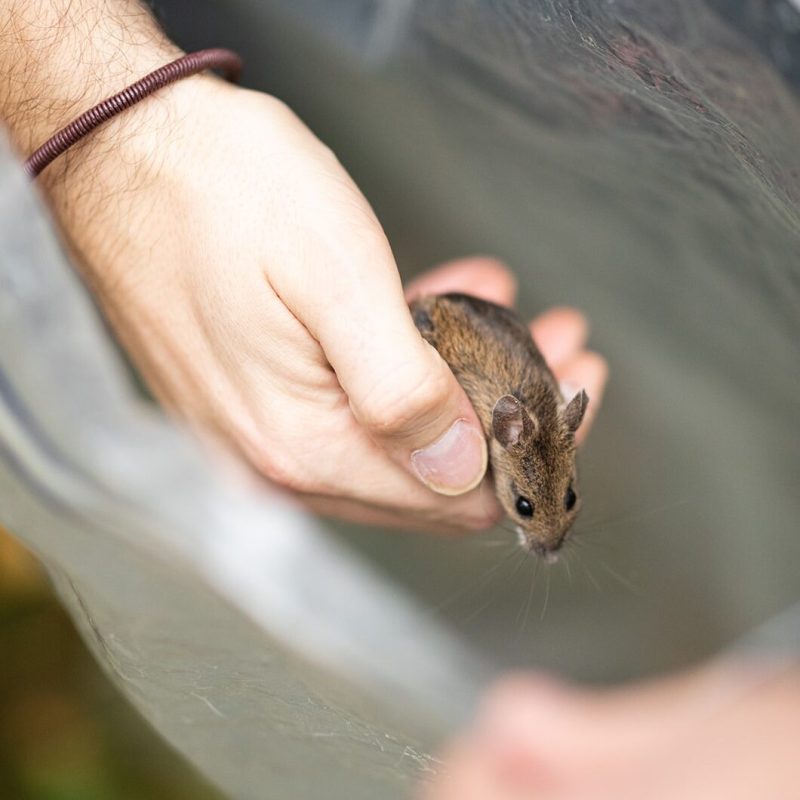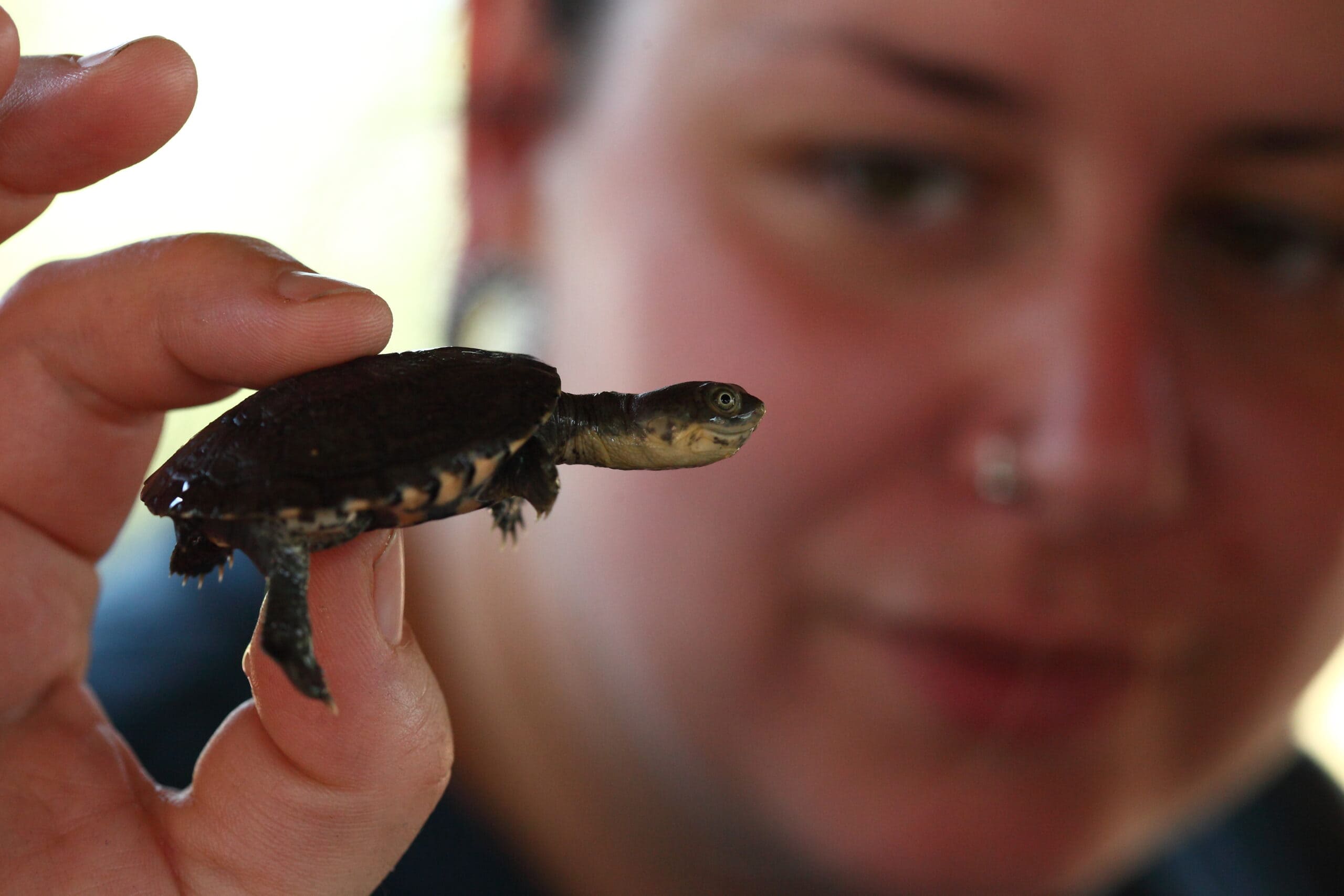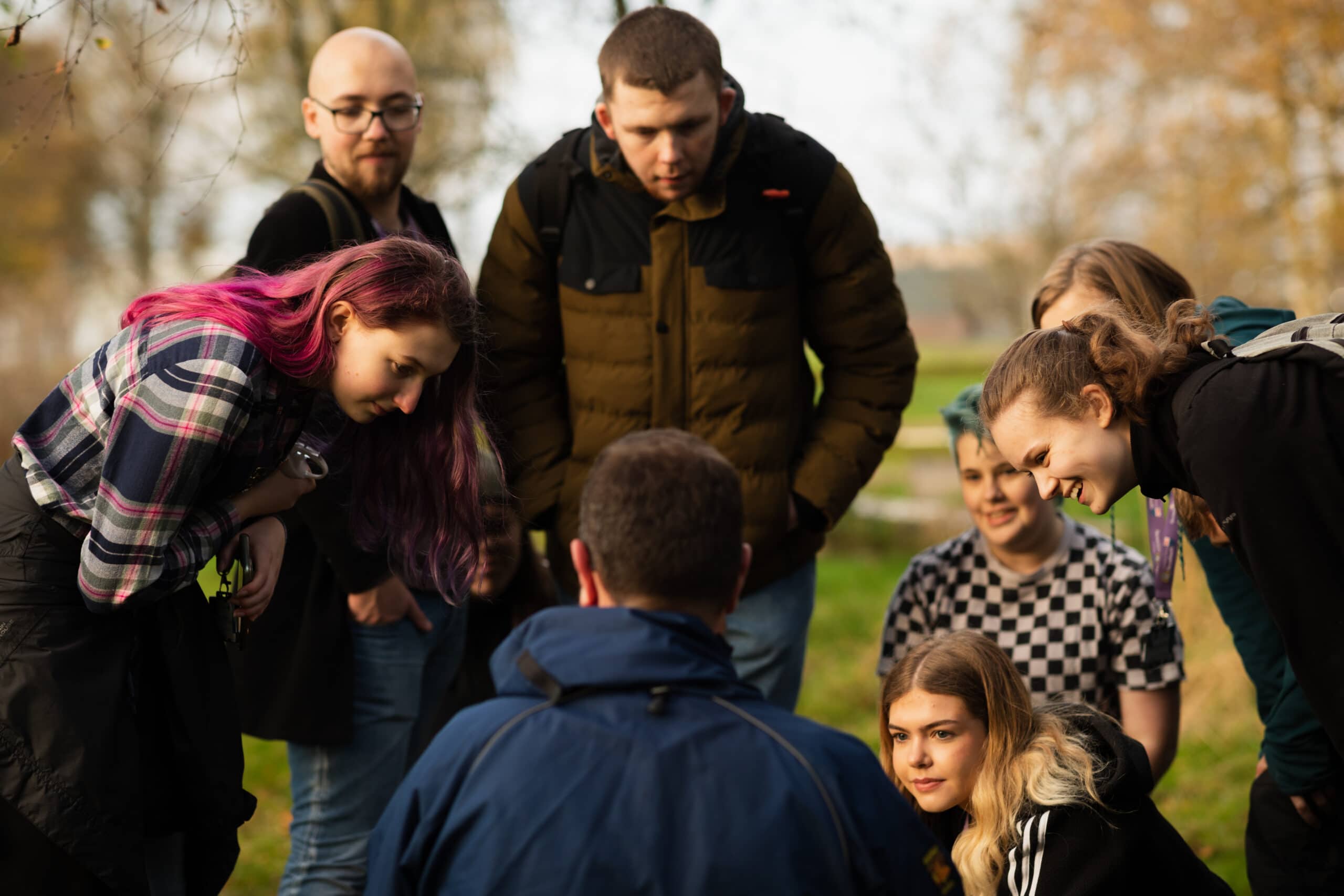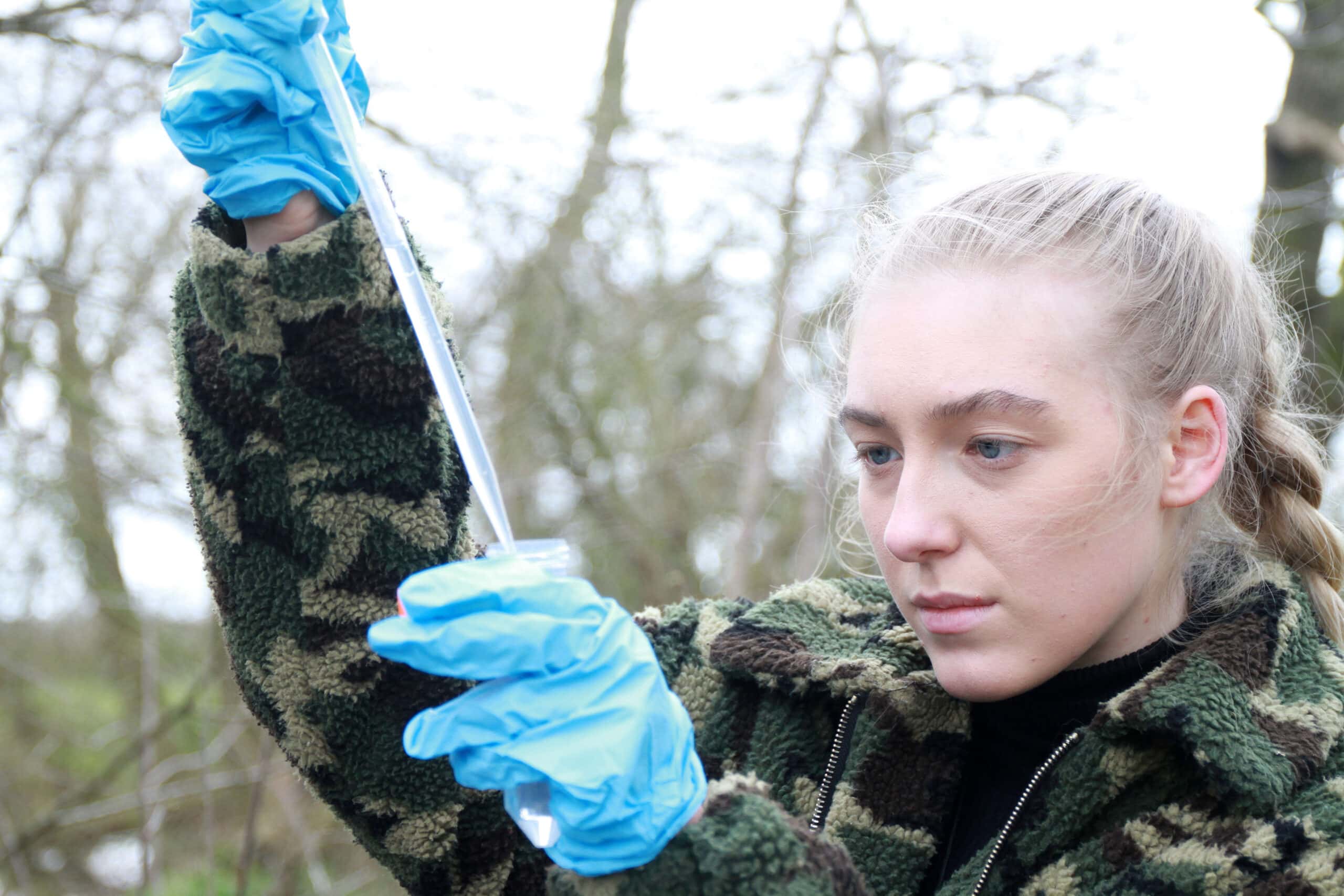Is your ambition to undertake meaningful conservation work to protect our wildlife and our environment for years to come?
This course includes a broad range of specialist modules and practical opportunities to gain the essential industry skills and knowledge, with which to effectively conserve species, habitats and biodiversity both in the UK and overseas.


Through your studies, you will address a range of topics such as wildlife ecology, conservation biology, evolution and adaptation, ecological survey skills and species identification and principles of ecological restoration.
Combined with dedicated practical work, using our campus laboratories, the wider Reaseheath estate and servicing our community conservation work, you will develop a broad range of transferable knowledge, skills and competencies for future application in the conservation science and ecology sectors.
In your first year, you will develop essential knowledge and skills in wildlife conservation, ecology, evolution and biodiversity, with an emphasis on practical experience whilst in your second year, you will shift in emphasis to more academic and research-informed study, including themes in population management, ecological restoration, wildlife rehabilitation, and environmental impact and mitigation. A work placement within a relevant field of industry or an international field course is also available to study for academic credit at this level. Your final year will further develop your critical thinking skills and deepen your knowledge in areas of conservation and ecology, and will include a research dissertation on a topic of your interest.


This course includes specialist modules and practical experience where students will gain skills and knowledge in such areas as species identification, live trapping techniques, population management, and strategies by which to effectively conserve species and biodiversity.
Students are expected to study and complete 120 credits per year, which comprises six modules of study per academic level/year. All modules in year 1 are mandatory study, to ensure students come away with the fundamental skills and knowledge required to progress onto further study. Conversely, students will have the opportunity to select for certain optional modules in years 2 & 3, to allow for more specific disciplines/subject pathways to be developed.
In Year 1 (Level 4), you will develop essential knowledge and skills in wildlife conservation, ecology, evolution and biodiversity, with an emphasis on practical experience. A heavy emphasis at Level 4 study will also be placed on the development of academic skills via regular tutoring with an assigned course manager.
Year 2 (Level 5) sees a shift in emphasis to more academic and research-informed study, including themes in population management, ecological restoration, wildlife rehabilitation, and environmental impact and mitigation. A work placement within a relevant field of industry or an international field course is also available to study for academic credit at this level.
In Year 3 (Level 6), you will continue your studies via more specific pathways that are designed to advance both your academic expertise and professional skills in conservation & ecology. Additionally, students undertaking their final year of study will typically conduct an independent piece of scientific research, to demonstrate competencies in the application of knowledge and research skills.
A minimum of 96 UCAS points from one of, or a combination of, the qualifications below, ideally in a science-based or relevant subject:
Non-standard entry: applicants aged 21 years of age or over without standard academic qualifications may be able to demonstrate considerable vocational experience and transferable skills. Their applications will be viewed on an individual basis to assess suitability. Any applicant who has not received certification for prior learning experiences, but has worked within the discipline, will also be considered. In some instances, applicants may be asked to attend an interview or complete a written assessment to support their application.
Contextualised Admissions: to support access and participation in Higher Education, University Centre Reaseheath operates a contextualised admissions policy, which allows reduced offers to be made to students with certain characteristics and/or social background. Further information can be found in the UCR Contextualised Admissions Policy, available on the website.
International Students: This course is not accepting applications from students requiring sponsorship for a Student visa. If you do not require sponsorship please contact UCRAdmissions@reaseheath.ac.uk for further information.
*Denotes optional modules. The number corresponds to the combination for selection.
* Denotes optional modules. The number corresponds to the combination for selection.
† Dissertation is a double-weighted module, worth 40 credits. Therefore, only five modules are selected for study at Level 6.
Please note that availability of optional modules is subject to availability of subject-specialist staff and the recruitment of the minimum viable student number (7 individuals). Should a module not be deemed viable for operation then all students whom selected for that module will be communicated to in writing in advance of the academic year, and will be informed of the alternative options available to select from.
Students will be expected to make their module choices for the following academic year during March/April, via on online module selection service. Confirmation of module selections will be provided via email following approval.
Overall workload
Your overall workload consists of class contact hours, independent learning and assessment activity, plus field trips. Your actual contact hours may depend on which optional modules you select, but the following information gives an indication of how much time you will need to allocate to different activities at each year of the course:
Year 1: 30% of your time is spent in timetabled teaching and learning activity
Teaching, Learning and Assessment: 360 hours
Independent Study: 840 hours
Year 2: 21% of your time is spent in timetabled teaching and learning activity
Teaching, Learning and Assessment: 252 hours
Placement: 150 hours
Independent Study: 798 hours
Year 3: 14% of your time is spent in timetabled teaching and learning activity
Teaching, Learning and Assessment: 170 hours
Independent Study: 1030 hours
Class sizes average between 20-30 for modules exclusively delivered on the programme. For those modules offered across several programmes, class size could be as high as 90 individual learners.
Assessment Methods
Assessments are designed to encourage both academic skills and professional skills highly sought after in industry. Assessments include a combination of coursework and timed online assessments. Coursework may take many forms including: essays, reports, data processing, presentations, academic posters, seminar discussions, interviews, critical reviews, portfolios of evidence. The timed online assessments vary, depending on the nature of the module, but may take the form of multiple-choice papers, essays, practical assessments, data handling questions and short answer quizzes.
The balance of assessment by timed online assessment and assessment by coursework depends to some extent on the optional modules you choose. The approximate percentage of the course assessed by coursework is as follows:
Year 1
54.5% coursework
45.5% practical or timed online assessment
Year 2
85% coursework
15% practice or timed online assessment
Year 3
75% coursework
25% practical or timed online assessment
Feedback
Feedback is supplied via Turnitin or directly from the module tutor. The majority of submissions are made via Turnitin and feedback for coursework is provided within twenty working days after the submission date.
Written feedback will be supported verbally should the student require clarification. Formative assessment feedback will be provided at the time of completion where possible, with more detailed summative feedback for reports.
Students will be able to access course timetables for the academic year in September.
Timetables are subject to change, but most students can expect to spend 3-4 days per week on campus.
Students are given the opportunity to study an optional module at level 5 (year 2) entitled Work Based Learning for the Land Based Industries. Students are expected to source their own placement, and complete a minimum of 150 hours of work, which can be accrued either in a block or cumulatively over weekends and holiday periods. When selecting a placement, students should consider the financial implications associated with accommodation, travel/commuting and the possible need for a Disclosure Barring service (DBS) check, as UCR is unable to subsidise such costs.
Tuition Fees
As a student at UCR, you will have two main costs to meet; your tuition fees and living costs.
Our full-time tuition fees for UK and EU students, entering University, can be found on our student finance page. These fees are charged for each academic year of a course and are set by the college annually.
Tuition fees for international students can also be found on our student finance page.
Additional Costs
Students will be offered the chance to engage in both domestic and overseas learning opportunities with which to enhance their classroom-based learning experience. Here, students will have the option to undertake overseas study for academic credit in year 2 of the programme, or simply participate for experiential purposes. These may include opportunities to undertake conservation field courses within locations such as South Africa, Central America and the UK.
The main emphasis placed on these field courses is the development of professional, industry relevant skills and the application of students’ knowledge in a novel, stimulating, yet challenging environment. Costs associated with the field courses range from £500 – £1200 (UK), and between £2,200 – £3,000 (Central America & South Africa). Please note that precise pricing of all field courses is subject to change, pending availability and recruitment.
Equipment Costs
Prices of equipment are subject to change dependent on retailer.
Apply directly through UCAS
DC41
A minimum of 96 UCAS points
September 2025
Full-time: 3 years
Here you will find useful information about the services and support available at University Centre Reaseheath. Click to expand each item:
University Centre Reaseheath is committed to providing additional financial support to those who need it. To find out about the bursary schemes available visit our additional financial support page.
For students to get the best out of their time at University Centre Reaseheath, we must both recognise that we owe obligations to each other. These obligations are set out in our UCR Student Contract. Before you accept an offer of a place at University Centre Reaseheath, it is important that you read these contract conditions. If you are going to be living in Halls of Residence, you will also need to read the Student Accommodation Licence Conditions. Both of these contracts can be found here.
Click here to view the University Centre Reaseheath Student Protection Plan.
All UCR students are given the opportunity to apply for residential accommodation. First year students are guaranteed accommodation and this offer is made to all applicants who live more than a reasonable daily travelling distance from Reaseheath (providing you have applied before the UCAS equal considerations deadline. For full details on our halls of residence visit our accommodation page.
We have a team of dedicated professionals on hand to offer you support. These include our Student Services Team, Inclusive Learning Team, Library and Learning Resources Team and the Reaseheath Careers Service. You can find more information on the support provided at Reaseheath on our support page.
University Centre Reaseheath is proud to welcome international students. For more information, please visit our international students page.